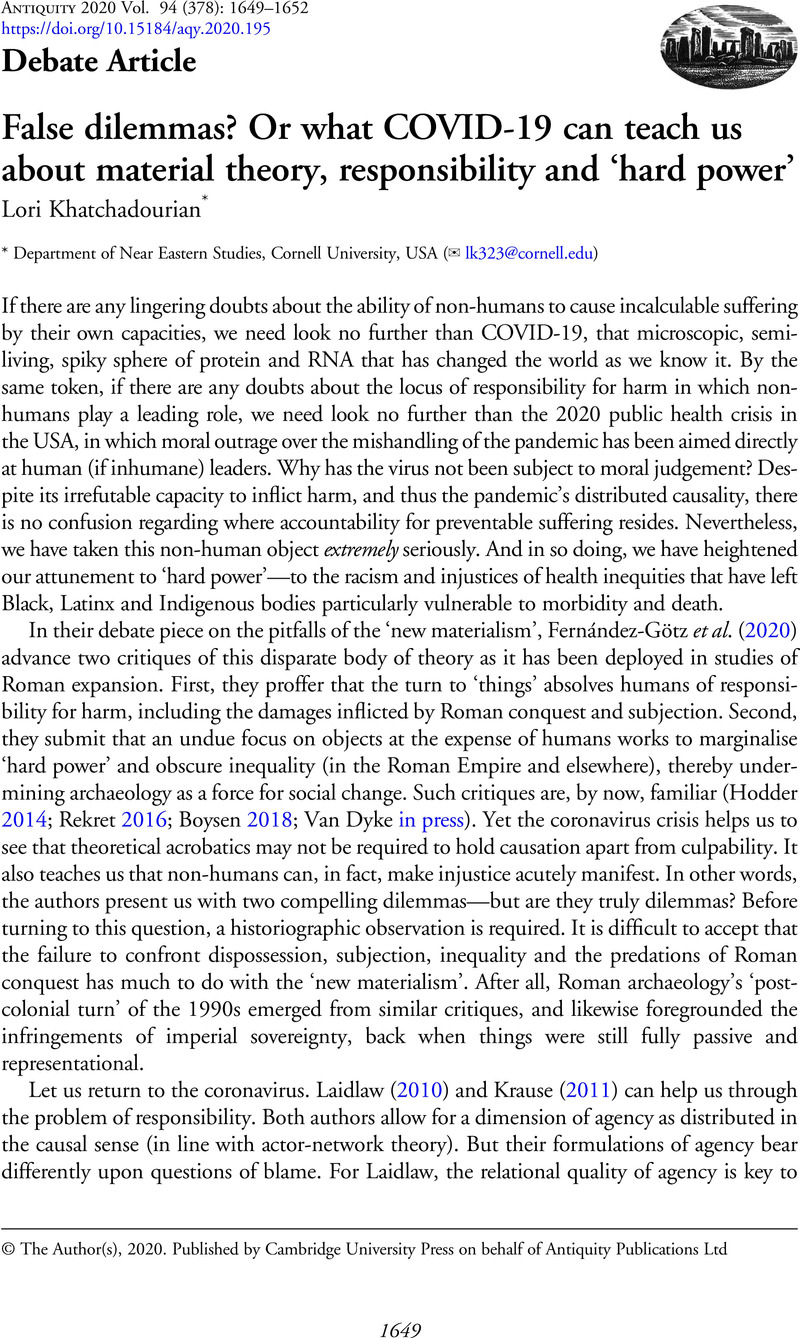Crossref Citations
This article has been cited by the following publications. This list is generated based on data provided by Crossref.
Fernández-Götz, Manuel
Maschek, Dominik
and
Roymans, Nico
2020.
Power, asymmetries and how to view the Roman world.
Antiquity,
Vol. 94,
Issue. 378,
p.
1653.
Van Dyke, Ruth M.
2021.
Ethics, Not Objects.
Cambridge Archaeological Journal,
Vol. 31,
Issue. 3,
p.
487.
Magnani, Matthew
Venovcevs, Anatolijs
Farstadvoll, Stein
and
Magnani, Natalia
2021.
How to Record Current Events like an Archaeologist.
Advances in Archaeological Practice,
Vol. 9,
Issue. 4,
p.
379.
Magnani, Matthew
Magnani, Natalia
Venovcevs, Anatolijs
and
Farstadvoll, Stein
2022.
A contemporary archaeology of pandemic.
Journal of Social Archaeology,
Vol. 22,
Issue. 1,
p.
48.
Mol, Eva
2023.
New Materialism and Posthumanism in Roman Archaeology: When Objects Speak for Others.
Cambridge Archaeological Journal,
Vol. 33,
Issue. 4,
p.
715.





